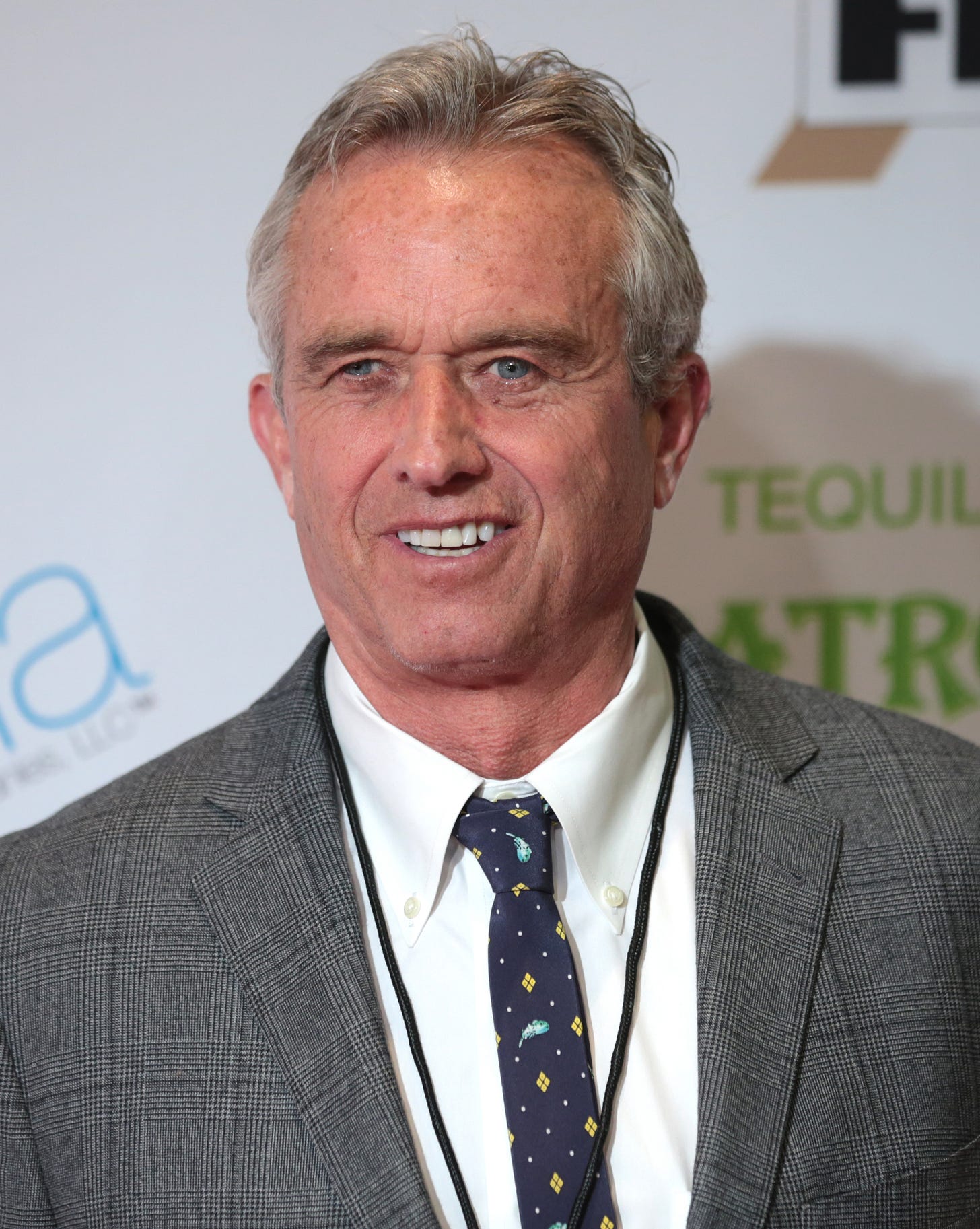Pure Isn't Good
Antivax, segregation: purity has a lot of ideological power, most of it bad.
Image: Robert F. Kennedy, Jr. Credit: Gage Skidmore CC
You can find an index of all my substack posts on fascism here.
We tend to think of "purity" as a good thing. Pure water is safe to drink; pure motives are, well, pure; pure people are unstained by sin. Purity is the opposite of corruption; it's virtue unmixed with dross. It's clear, righteous, white. Impurities take you further from God.
The religious language there starts to get into why "purity" as a supposed virtue can be so politically dangerous. Purity is, by its nature, an absolute; if purity is the ideal, there's not much space for tolerance, or even for difference.
A nostalgic, racialized purity is at the heart of fascist politics. Fascist politics might in fact best be described as a politics of purity; fascism imagines a pure, unsullied, uncorrupted volk, rooted in race and/or religion, and then characterizes anything that violates this vision (like, the existence of Jewish people, or Black people, or LGBT people) as corruption which must be eliminated—through segregation, ethnic cleansing, or death camps, as the case may be.
Fascist purity is sexual as well as racial, to the extent the two can be separated. Eugenics—the idea that the volk are weakened by intermarriage with corrupt outsiders—is a pseudoscience of purity. It's often linked, or intertwined, with a traditionalist, absolutist approach to sexual mores and gender roles. Purity in far right communities means policing sexuality in accordance with patriarchal norms. Women who have sex out of wedlock—either by choice or because they're sexually assaulted—are viewed as stained or corrupted. Non-heterosexual love is portrayed as unnatural and, of course, impure. That has supercharged anti sex work legislation, and the current anti LGBT moral panic, both of which claim to be protecting the purity of children.
These are all examples from the political right. But "purity" rhetoric has a lot of purchase on other parts of the political spectrum as well. The attacks on sex work are bipartisan, for example. The environmental movement often uses language of purity. That can mobilize support, but it also risks conflating health with purity, or lack of human touch or intervention.
Those links have created dangerous antivaxx sympathies in progressive communities, as some on the left have embraced the idea that vaccines violate the sanctity of the body, or function as impurities. This can extend to other medicines as well, as you can see in self-help author turned presidential candidate Marianne Williamson's past opposition to antidepressants—and in the bipartisan panic about opiods, resulting in brutal suffering for many chronic pain patients.
The implicit, and often explicit, ableism embedded in purity rhetoric is encapsulated in the antivaxx obsession with debunked and false conspiracy theories that vaccines cause autism. Fear of impure substances in the body are conflated with the idea that some forms of human difference are themselves impure or corrupt—neurodivergence as eugenic failure.
The right is aware that purity language is broadly popular, and deliberately leverages it to make political inroads. Former Trump advisor Steve Bannon has been a big booster of antivax asshole RFK Jr's campaign for the Democratic nomination—and while that's no doubt in part about causing chaos via the Kennedy name and brand, it's also about causing chaos via vaccine purity talking points. Seyward Darby in her book Sisters in Hate profiles one white woman, Ayla Stewart, who started out as a vegan hippie who rejected traditional medicine. She followed her obsession with purity right into white nationalism.
The glorification of purity doesn't inevitably lead to fascism. But it cedes fascists a lot of ideological space to build power. If we want to defeat the right, we need to figure out how to talk about virtue in a different way. Human beings aren't pure, and they shouldn't be pure. We're heterogenous, messy creatures stained with love and hope. Fascists claim to be champions of cleanliness and order. But the only purity they offer is the purity of death.



I think the War on Drugs is more about racism, myself—since to the Christian Right's mind, it's those NEE-Grows and Chinese (by which they mean anybody with an epicanthal fold) who sell dope! To our kids!
It's all too reminiscent of that scene in THE GODFATHER where The Five Families hold a negotiation to end their turf war, and decide selling drugs should be "controlled"...to Black neighborhoods only! Or how only the Chinese seemed to have opium dens...after the British(!) addicted them to it as a means of "soft control"(!!!) over China. That numerous White Europeans also got addicted to opium thanks to laudanum (a painkiller including alcohol and morphine), or that Bayer developed Heroin as a "nonaddictive" substitute to it (stop me if you've heard this one recently), is one of those historical things you're not taught in school.
I've said elsewhere that marijuana is on the restricted list as a "gateway drug" because, prior to the Sixties, it was mostly Persons of Color who smoked it—or persons who associated with them like jazz musicians.